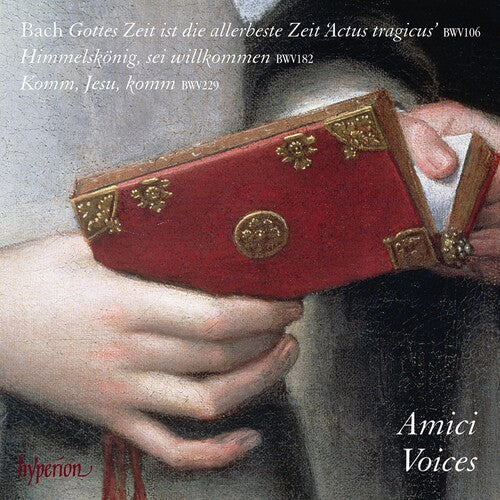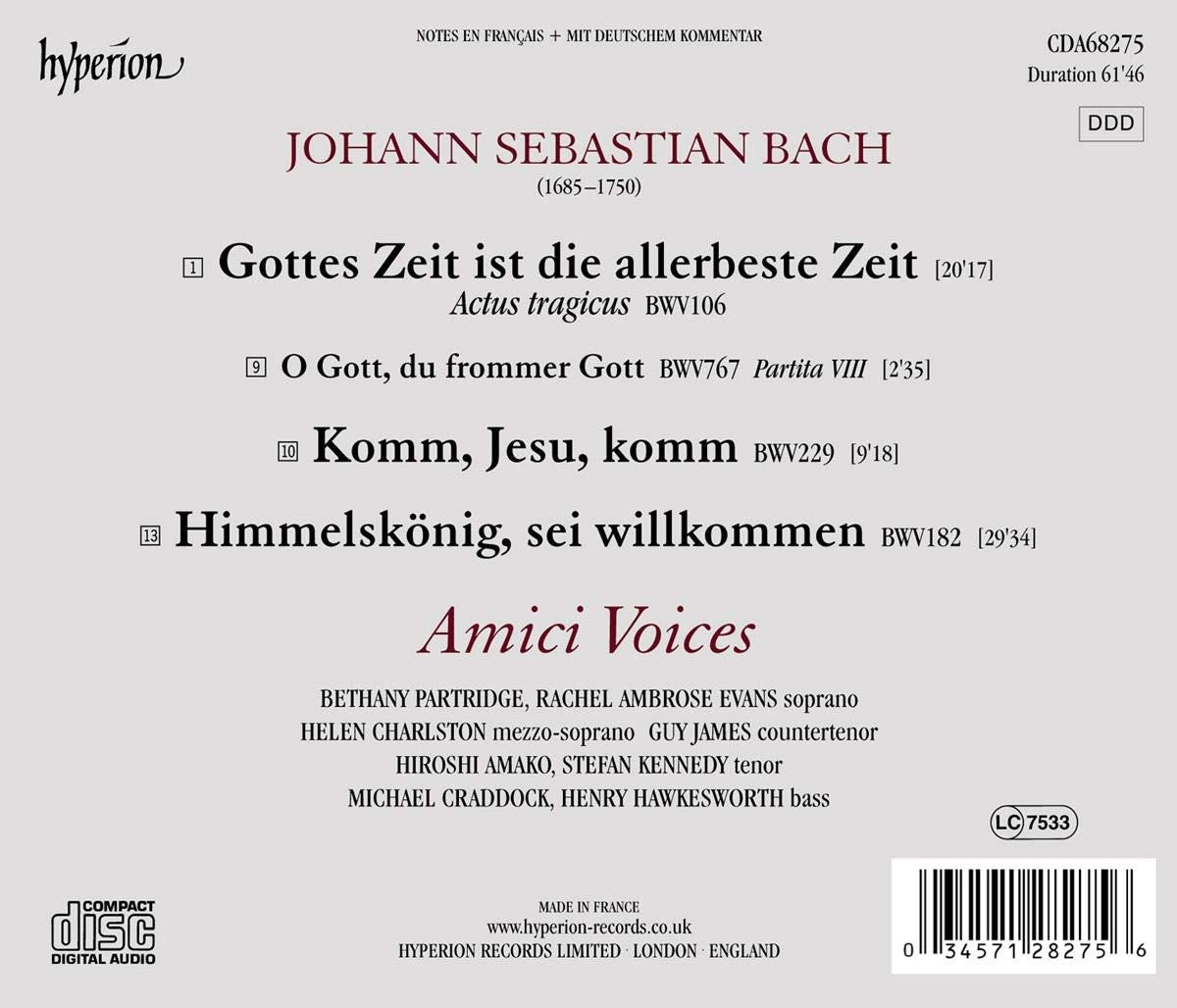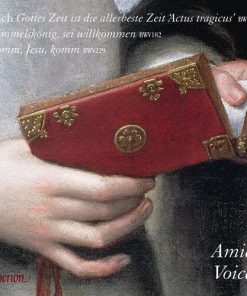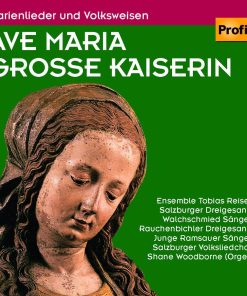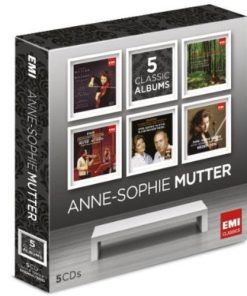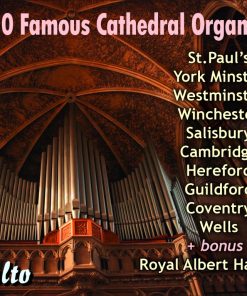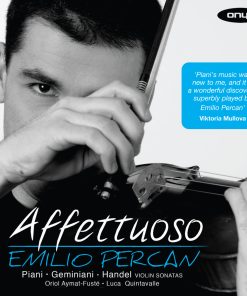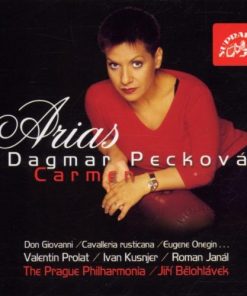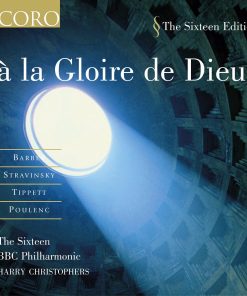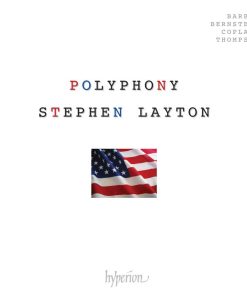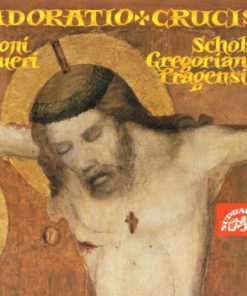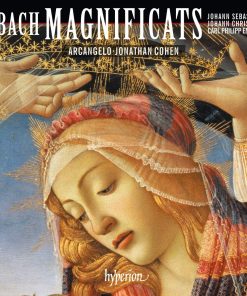Bach: Cantatas Nos. 106 & 182 – Amici Voices Hyperion
$ 20,99 $ 12,59

Bach may only have been in his early twenties when he wrote it, but Cantata No 106 (the ‘Actus tragicus’) is a profound contemplation of things final; the motet Komm, Jesu, komm occupies similar eschatalogical territory. This is an inspired programme of some of the most moving vocal music ever written.

Gottes Zeit ist die allerbeste Zeit ‘Actus tragicus’ BWV106[20’13]1
No 1: Sonatina[2’43]2
No 2a, Coro: Gottes Zeit ist die allerbeste Zeit[2’02]3
No 2b, Arioso: Ach, Herr, lehre uns bedenken[2’00]Hiroshi Amako (tenor)
4
No 2c, Aria: Bestelle dein Haus[1’07]Michael Craddock (bass)
5
No 2d, Coro ed Arioso: Es ist der alte Bund[3’24]Bethany Partridge (soprano)
6
No 3a, Aria: In deine Hände befehl ich meinen Geist[2’17]Helen Charlston (mezzo-soprano)
7
No 3b, Arioso con Choral: Heute wirst du mit mir im Paradies sein[3’40]Michael Craddock (bass)
8
No 4, Coro (Choral): Glorie, Lob, Ehr und Herrlichkeit[3’00]9
Partita 8 (Movement 8 of O Gott, du frommer Gott, BWV767)[2’35]Terence Charlston (organ)
Komm, Jesu, komm BWV229[9’18]10
No 1a, Choral: Komm, Jesu, komm, mein Leib ist müde[2’55]11
No 1b, Choral: Komm, komm, ich will mich dir ergeben[4’54]12
No 2, Aria: Drum schließ ich mich in deine Hände[1’29]Himmelskönig, sei willkommen BWV182
13
No 1: Sonata[1’46]14
No 2, Coro: Himmelskönig, sei willkommen[3’24]15
No 3, Recitativo: Siehe, ich komme[0’38]Henry Hawkesworth (bass)
16
No 4, Aria: Starkes Lieben[2’36]Henry Hawkesworth (bass)
17
No 5, Aria: Leget euch dem Heiland unter[9’56]Helen Charlston (mezzo-soprano)
18
No 6, Aria: Jesu, lass durch Wohl und Weh[3’26]Hiroshi Amako (tenor)
19
No 7, Choral (Coro): Jesu, deine Passion[3’32]20
No 8, Coro: So lasset uns gehen in Salem der Freuden![4’13]
Fast Shipping and Professional Packing
Due to our longstanding partnership with UPS FedEx DHL and other leading international carriers, we are able to provide a range of shipping options. Our warehouse staff are highly trained to pack your goods exactly according to the specifications that we supply. Your goods will undergo a thorough examination and will be safely packaged prior to being sent out. Everyday we deliver hundreds of packages to our customers from all over the world. This is an indication of our dedication to being the largest online retailer worldwide. Warehouses and distribution centers can be located in Europe as well as the USA.
Orders with more than 1 item are assigned processing periods for each item.
Before shipment, all ordered products will be thoroughly inspected. Today, most orders will be shipped within 48 hours. The estimated delivery time is between 3-7 days.
Returns
The stock is constantly changing. It's not entirely managed by us since we are involved with multiple parties such as the factory and our storage. The actual stock can fluctuate at any time. Please understand it may happen that your order will be out of stock when the order is placed.
Our policy is valid for 30 days. If you haven't received your product within 30 days, we're not able to issue either a return or exchange.
You are able to return a product if it is unused and in the same condition when you received it. It must also still remain in the original packaging.
Related products
MUSIC CD
MUSIC CD
